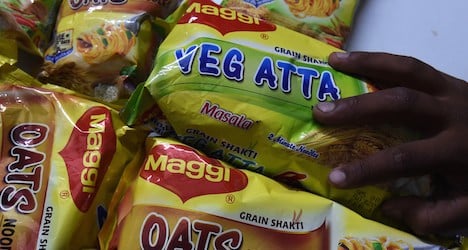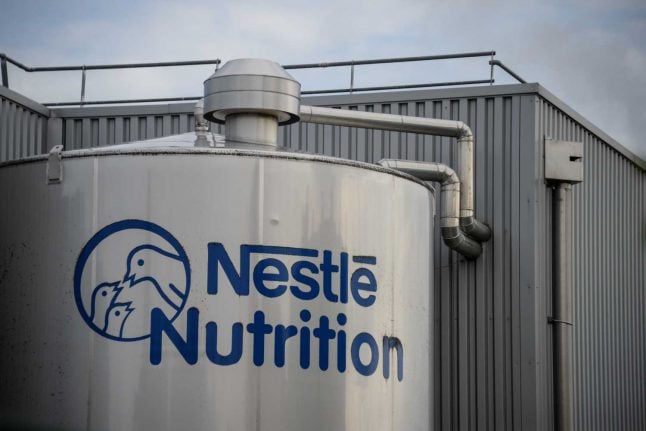The Vevey-based company said on Monday that its Indian unit had estimated the value of Maggi noodle stocks withdrawn from the shelves at 2.1 billion rupees.
Another 1.1 billion rupees worth of Maggi stocks were in factories and with distributors, the company said.
India's food safety regulator had banned the product over tests which it said showed the noodles contained excessive levels of lead.
The total cost of the shock ban would be given later, Nestlé said.
The world's biggest food company is challenging the June 5th order from the government's food safety regulator.
The company had already announced it was pulling the product from sale when the Food Safety and Standards Authority of India (FSSAI) imposed a ban following similar moves by some state governments.
Nestlé, which says the noodles are safe to eat, said it would keep the product off store shelves despite the court action it has launched challenging the ban.
The safety scare is a huge blow to the company, which has been selling its
Maggi products for over three decades in India, and has 80 percent of the
country's instant noodle market.
Maggi noodles grew increasingly popular as more and more Indians moved away from their homes to study or seek work.
It emerged as one of India's five most trusted brands in a consumer survey conducted last year.
Several celebrities have endorsed Maggi over the years, including Bollywood superstar Amitabh Bachchan.
NESTLE
Indian Maggi ban costs Nestlé $50 million
Nestlé says that India's decision to ban the Swiss food giant's hugely popular Maggi instant noodles over safety concerns had led to 3.2 billion rupees ($50.5 million) worth of goods being withdrawn.
Published: 15 June 2015 18:06 CEST

Photo: Money Sharma/AFP
Url copied to clipboard!


 Please whitelist us to continue reading.
Please whitelist us to continue reading.
Member comments